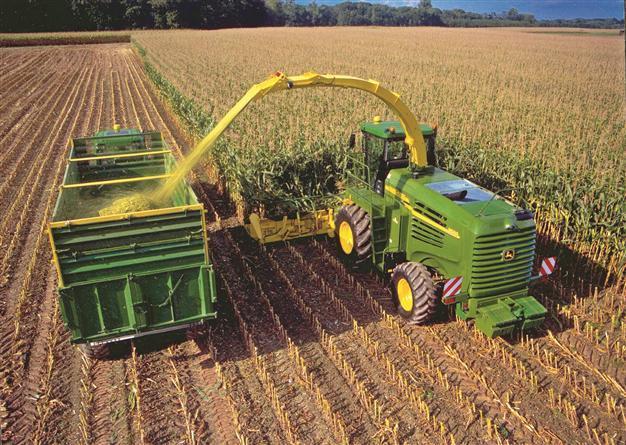Turkish farmers react against US incentives
İZMİR - Anatolia News Agency

Corn crops are among the local agricultural products, such as soy beans and cotton, that face unfair competition due to US loans, according to local farmers.
Turkish farmers are asking the Turkish government to come up with a financial scheme to protect the local agricultural sector from unfair competition from U.S. GSM loans as part of the government’s incentive package, which is currently on the table.The GSM 102 and 103 loan programs, run by the U.S. Department of Agriculture’s Commodity Credit Corporation (CCC), aim to increase exports of American agricultural products, such as wheat, cotton, soybeans, sunflower oil, corn and peanuts. The loans have terms up to three years, and provide many advantages for importers due to their low interest rates. The U.S. has allotted $425 million in GSM loans for 2012, which is very high considering that since 1999 the total loan amount has been $1.6 billion.
Because the loans have a two to three-year repayment window, they provide attractive incentives for importers of agricultural products and foster unfair competition for local producers.
“No Turkish institution can provide such favorable financing conditions, so naturally importers prefer American products,” said Bertan Balçık, executive board president of the Söke Chamber of Commerce. Söke, located in the Aegean province of Aydın, is one of Turkey’s leading cotton-producing towns. GSM loans also pull down the price of local cotton, because not enough Turkish cotton is sold in the domestic market, Balçık said. While cotton trades on the Izmir Commodities Exchange at 3.60 Turkish Liras, it trades on the world exchanges at the equivalent of 4.10 liras, according to Balçık.
GSM loans bad news
“For years GSM loans have created a bad situation for Turkey, and they are the reason Turkish agriculture is less competitive internationally,” said Barış Kocagöz, president of the National Cotton Council. However, not much can be done short of filing a complaint with the World Trade Organization, and the chances of winning would be slim, he added.
Şemsi Bayraktar, president of Turkey’s Chamber of Agriculture Union, said that of all Turkey’s agricultural products, cotton is the most affected by GSM loans, and globally it is the product subject to the most national intervention. Turkey does not do enough to protect its cotton, Bayraktar said.
“While other countries employ GSM loans as part of their export policies, Turkey has not implemented any policies to protect its cotton, and this threatens local production,” Bayraktar said.
















